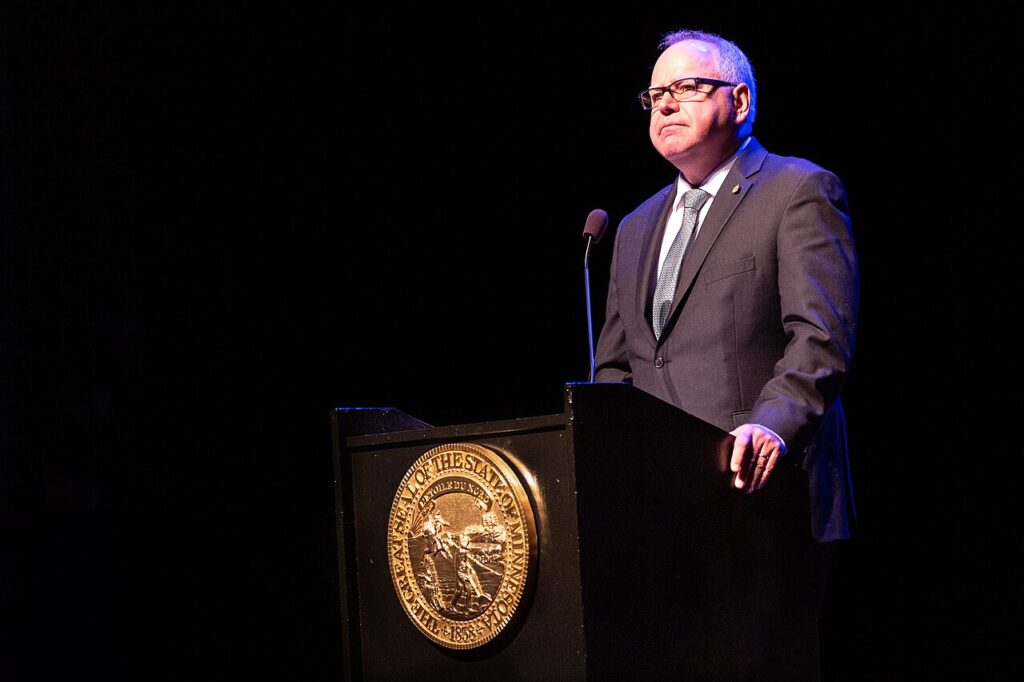Kamala Harris and Tim Walz will form the first major party ticket supporting cannabis legalization, setting up a situation where significant federal policy changes could be on the horizon, including full legalization, banking access for cannabis businesses, and expanded medical research. As Minnesota governor, Tim Walz implemented cannabis policies that could influence national policy.
Kamala Harris & Tim Walz – The Winning Ticket for Cannabis Legalization


Has the United States reached the tipping point in its legalization movement? With half of the American states, representing over 70% of the population, having legalized cannabis, Kamala Harris has chosen Tim Walz, the notoriously pro-regulation governor of Minnesota, as her running mate for the November presidential elections.
This marks the first time a major party has presented two candidates who openly support cannabis legalization. Their unified position could have significant implications for the future of cannabis policy and drug policy in general in the United States.
For more news like this, along with all the latest in legalization, research, and lifestyle, download our free cannabis news app.
Tim Walz and His Stance on Cannabis
Governor Tim Walz has championed cannabis reform throughout his political career. As a member of the United States House of Representatives from 2007 to 2019, Walz sponsored and co-sponsored numerous bills aimed at advancing cannabis policy.
He notably advocated for a law promoting medical cannabis research for veterans, marking the first standalone cannabis reform bill to be passed by a congressional committee.
Walz also backed several amendments to protect state cannabis programs from federal interference and to allow the U.S. Department of Veterans Affairs to issue recommendations on medical cannabis in legal states.
Walz Governorship and Continued Advocacy
Since becoming governor of Minnesota in 2019, Walz has continued to push for comprehensive cannabis reform. In 2023, he signed a historic bill legalizing adult-use cannabis, making Minnesota the 23rd state to do so.
“What we now know is that prohibition doesn’t work,” Walz said at the signing ceremony, emphasizing that the bill focused on expunging criminal records and addressing injustices from previous drug policies.
Beyond legalization, Walz has taken steps to decriminalize drugs, establish safe consumption sites, and create a task force on psychedelics. These initiatives reflect his broader commitment to harm reduction and innovative drug policy approaches.
The Harris-Walz ticket has been met with enthusiasm by cannabis advocates and industry players.
David Culver, Senior Vice President of Public Affairs at the U.S. Cannabis Council, highlighted the significance of having a pro-legalization candidate from a major party.
“For the first time, there will be a major party in favor of legalization,” Culver noted, pointing to the potential for substantial changes in federal policy under a Harris-Walz administration.
Walz’s leadership in Minnesota has already set high standards for cannabis legalization. Under his administration, Minnesota developed a progressive and justice-focused framework for cannabis regulation, avoiding monopolistic practices and prioritizing social equity. Leili Fatehi, a cannabis advocate and political consultant in Minnesota, praised Walz’s vision and foresight, calling it essential for the anticipated changes in federal policy.
Contrasting Views
The contrast between Walz and his Republican counterpart, Senator JD Vance, highlights the differing views on cannabis policy. While Vance supports states’ rights to legalize cannabis—Ohio, in fact, began legal cannabis sales yesterday—he has also called for stricter law enforcement and expressed concerns about cannabis use.
With both Harris and Walz supporting cannabis legalization, the potential for federal policy reform is significant. Kamala Harris has already shown support for easing federal cannabis laws within the Biden administration. A Harris-Walz administration could see new advances, particularly in areas such as federal cannabis legalization, banking access for cannabis businesses, and expanded medical cannabis research.
While the exact priorities of a Harris-Walz administration remain uncertain, their combined records suggest a strong likelihood of progressive reforms. These could include broader harm reduction policies and a focus on psychedelic research, building on the Walz initiatives in Minnesota.
—
(Featured image by Lorie Shaull (CC BY-SA 4.0) via Wikimedia Commons)
DISCLAIMER: This article was written by a third-party contributor and does not reflect the opinion of Hemp.im, its management, staff, or its associates. Please review our disclaimer for more information.
This article may include forward-looking statements. These forward-looking statements generally are identified by the words “believe,” “project,” “estimate,” “become,” “plan,” “will,” and similar expressions. These forward-looking statements involve known and unknown risks as well as uncertainties, including those discussed in the following cautionary statements and elsewhere in this article and on this site. Although the company may believe that its expectations are based on reasonable assumptions, the actual results that the company may achieve may differ materially from any forward-looking statements, which reflect the opinions of the management of the company only as of the date hereof. Additionally, please make sure to read these important disclosures.
First published in Newsweed, a third-party contributor translated and adapted the article from the original. In case of discrepancy, the original will prevail.
Although we made reasonable efforts to provide accurate translations, some parts may be incorrect. Hemp.im assumes no responsibility for errors, omissions or ambiguities in the translations provided on this website. Any person or entity relying on translated content does so at their own risk. Hemp.im is not responsible for losses caused by such reliance on the accuracy or reliability of translated information. If you wish to report an error or inaccuracy in the translation, we encourage you to contact us.



Comments are closed for this post.